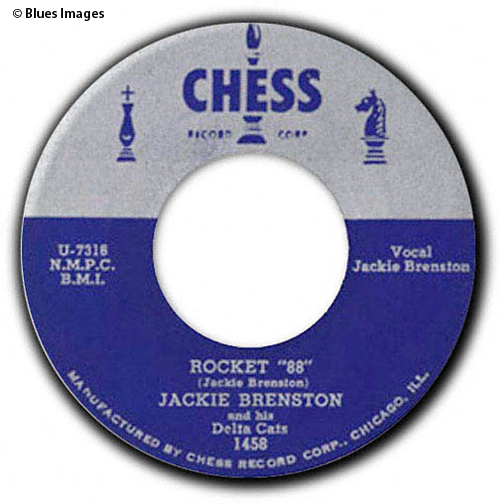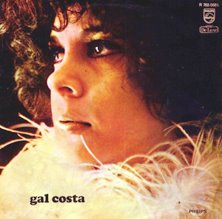
So lately everybody has gotten into the argument as to where rock and roll was born. According to The New York Times, New Jersey has now gotten into the act, with two cities declaring that rock began when Bill Haley and his band played there. The argument has devolved into semantics with one city claiming he played there with the Comets, his rock and roll band and the other that he played with the Saddlemen, a country band that was sort of rockish anyway. New Jersey is but one of several places all laying claim to the sound, including Memphis, the Mississippi Delta, Cleveland and Philadelphia. But these warring places have one troubling and tiresome thing in common, a dogged, insistence that wherever rock and roll came from or whoever came up with it, that person simply MUST BE WHITE.
For if the person was black then it was merely R&B or race music. Or sped up 12 bar blues. One wonders where that leaves Jackie Brenston and his Delta Cats’ ‘Rocket 88,’ a record held up by no less than Sam Phillips as the first rock and roll record. Doesn’t matter that Phillips thought it was Rock and Roll, most white critics consider it R&B, a bridesmaid of rock, not the Bride. Even the Bill Haley version of Rocket 88—which has no real difference from the original—is held up by some as the first rock and roll record. Rolling Stone, in one if its most inexplicable and disappointing articles came on the side of the Elvis kiss-ass and declared that ‘That’s Alright Mama’ was the first rock and roll record, something that Elvis disputed almost twenty years before and the magazine proved wrong in its very own 50’s issue from April 1990.
This begs the question of just what a black artist has to do to be considered rock. Any black rock song made too early (Rocket 88 was released in 1951) gets classified as R&B with patronizing rock critics declaring it to be important to the formation of rock and roll, but not rock itself. What does Rocket 88 have to do to be called a rock and roll song? Sure it’s ragged 12 bar blues but so is The Beatles’ Day Tripper. If anything Rocket 88 had a kid brother’s relationship to R&B, eschewing the dirty old man double-talk of the blues for a brand new lyrical concept that was all youth, all id and as blatantly sexual as it was witty: The car metaphor. Rocket 88 did more than that. It also introduced fuzz guitar almost 20 years before it became popular and pushed the drum way to the front where the whole song seemed submissive to the beat. Even listening to it now the blatant, sexually ferocious youth of the thing says rock and roll far more than anything by Bill Haley and The Comets.
But Jackie and the Delta Cats were not white, so Rocket 88 is R&B. After all Rolling Stone says so. For rock and roll to be rock and roll it simply must have some country in it. Never mind that all these black kids came from the south, grew up on country as much as blues and some, like Ray Charles actually played in country band. Critics use country merely as a ruse so they do not have to say that for rock to be rock it must have some white in it. White meaning people, not influence. Whatever black people did was proto-rock, proto being another word for prehistoric.
This slur disguised as compliment is nothing new of course. Jazz’s greatest fans have been insulting it for decades. David Hadju once wrote that in lionizing jazz the beats popularized the myth of black creative primitivism, allowing the most open-minded white listeners to use words such as ‘effortless’ and ‘instinctual’ to define black genius. Black art was an inexplicable mystery, like voodoo or black magic. So Prince is an instinctual genius despite playing 90 instruments and composing for the Joffrey ballet, but Elvis Costello is a craftsman. Duke Ellington is a natural talent but Stravinsky is a master of “multiple compositional styles, who revolutionized orchestration.” Black art is never about craft, education, technique, or intelligence. Not even jazz. Not even Free Jazz. Not even Be-bop.
Rhapsodizing about be-bop, Allen Ginsberg gushed that the music gave him such a wild, sense of freedom that he felt that all he had to do was ‘grab a horn and blow.’ Charlie Parker could only snigger at the statement, but other jazzmen took this to considerable offence. The idea that music was of such uncultured simplicity, such accidental genius that anybody could be inspired to just do it was simply preposterous, even if Ginsberg meant no harm by saying it. The truth is nobody can just grab a horn and play be-bop. One of the most complex music forms ever created, ever single person who played be-bop in its golden era was a genius, from Charlie Parker to Thelonious Monk, Dizzy Gillespie, Miles Davis, Cannonball Aderley, and Milt Jackson, among others. For all the wild abandon that Bolero inspires, nobody ever says Ravel makes one feel like grabbing a piccolo.
There is still this sense that something is not quite believable about black brilliance; that it happens by either chance or something inexplicable. And that the talent is never a matter of intellect, but ‘baffling brilliance,’ as Kurt Loder once said about Prince. Black brilliance is either off the cuff, or accidental or so couched in primitivism that one needs only to be wild and primitive as well to tap into it. Iggy Pop certainly thought so when he did the ridiculous Africa Man, where he simply growled and screamed like an idiot because well idiocy and inspiration go hand in hand with black people. Critics seem to want to believe that rock and roll emerged fully formed from the start, but not if that means black people did it. Not if that song is Rocket 88.
This isn’t racist so much as willfully ignorant. That rock and roll could be so well developed and explosive from as far back as 1951 (if not earlier) makes the music more phenomenal not less. Perhaps critics are worried that if Rocket 88 is credited for giving rock and roll everything it needed for the subsequent 40 years that would mean that white people contributed very little. This is of course ludicrous. Subtract Elvis or Carl Perkins from rock and roll and there would be no Beatles and certainly no Led Zeppelin. It’s crucial to remember that 50’s rock and rollers boxed themselves into a corner that they could not get out of and nearly took the music with them, until the Brits and the Beach Boys found a way out. Bill Haley, Elvis, Ike Turner, Little Richard; All these artists were critical to the creation, vitality and legacy of the music. But it all began with Rocket 88, and it’s high time people stop acting like it didn’t.







-image007.jpg)

